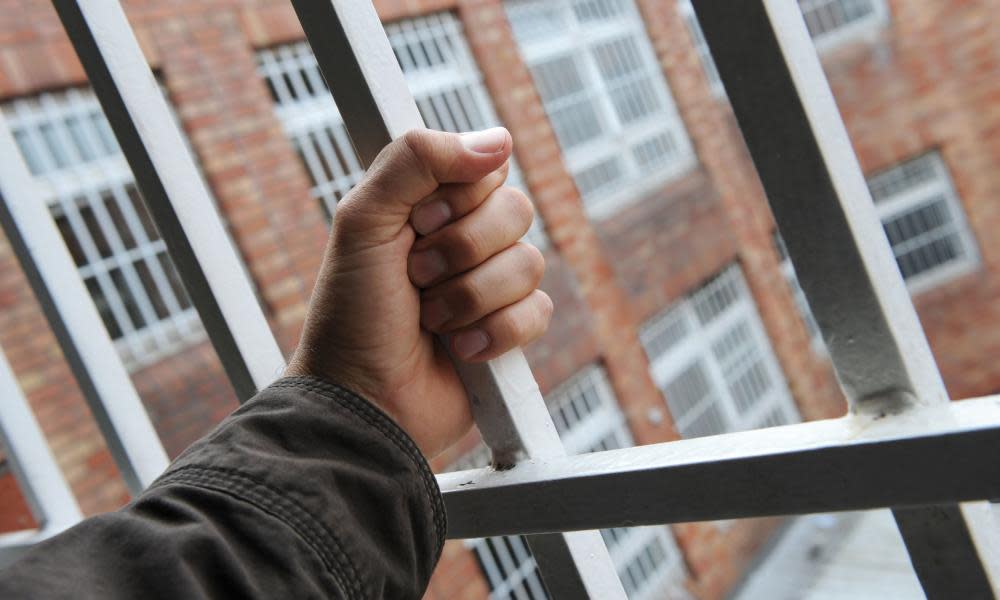Number of children on remand in Victoria doubled in decade to 2020

Up to two-thirds of children denied bail in Victoria were in custody unnecessarily, the state’s children’s commissioner has said, after a report found two-thirds of those on remand did not go on to receive a custodial sentence.
The principal commissioner for children and young people, Liana Buchanan, says the figures make the case for urgent reform of bail in youth justice matters, starting with a ban on denying bail to children aged 13 and under.
According to a report from the Sentencing Advisory Council the number of children held on remand in Victoria’s youth justice system – that is, children who have been detained or denied bail but are yet to be sentenced – more than doubled between 2010 and 2019.
Related: Australian Capital Territory votes to raise age of criminal responsibility from 10 to 14
In 2018-2019, children on remand made up 47% of all children in custody in Victoria – the lowest rate in Australia, despite the increase.
An analysis of youth detention figures in 2017-2018 showed there were 442 children and young people held on remand, with 660 cases between them, resulting in 567 case outcomes.
Of those, 66% received non-custodial sentences and another 5% were sentenced to time served – meaning they did not have to spend any additional time in custody. A further 21 cases were dismissed or not proven. Only 29% were sentenced to a custodial sentence that was longer than the time they had already been spent on remand.
Five of those detained were just 12-years-old.
The report found that many had been denied bail because they did not have safe accomodation or access to support services, suggesting it may be that “some children held for short periods were remanded as an unacceptable risk not because of the seriousness of their alleged offending or their prior history but because they did not have access to the necessary support services at the time the decision was made to bail or remand them”.
Among those denied bail due to unstable living situations was Chris*, a 17-year-old boy who spent 140 days in detention for offences committed while homeless, mainly stealing food and clothes. He is not an Australian citizen so not able to access mainstream support services. Logan*, aged 15, spent 60 days on remand after he was kicked out of residential out-of-home care after being charged with stealing a car and spitting on one of the residential careers. The magistrate said he would be granted bail if he had suitable accomodation, but the department of health and human services said it would take six weeks to get him another out-of-home care placement.
The sentencing advisory council recommended the government create a fully-resourced 24-hour statewide juvenile bail system, and repeated a recommendation made in a previous report for specialist children’s court services in regional areas. Children in regional areas were almost 1.5 times more likely to receive a custodial sentence than those in metropolitan courts.
Buchanan said that stricter bail laws introduced in 2018 and aimed at adult offenders had negatively impacted children and that reform was urgently needed.
“At the very least, the government should be looking at some urgent reform to stop 10 to 13-year-olds from being brought into custody on the basis of bail, while the state and territory governments are considering the raise the age campaign,” Buchanan told Guardian Australia.
The Australian Capital Territory voted to raise the age of criminal responsibility from 10 to 14 last month, while the national council of attorneys-general postponed a decision on the reform until next year.
Aboriginal and Torres Strait Islander children were significantly over-represented in those held on remand, making up 15% of the remand population, compared to 1% of the broader Victorian population. Children from Sudanese backgrounds were 12% of those on remand and another 12% were New Zealanders or from Māori or Pasifika backgrounds.
Related: Jacob's story: a second chance or a path to prison? – interactive case study
The cost of holding the 442 children on remand in 2017-18 was $41m, and the cost of detaining those who did not receive a custodial sentence was $15m. Buchanan said that if the children who were unnecessarily held on remand were granted bail it could reduce daily population of youth detention centres by half – meaning they would no longer face rolling lockdowns due to staff shortages.
The deputy chair of the sentencing advisory council, Lisa Ward, said being held in detention was linked to higher rates of re-offending.
Of those remanded in 2017-18, 94% had some prior contact with the justice system and 40% had been locked up the year before. The longer they were held on remand, the more likely it was that they received a lengthy custodial sentence.
“Remand introduces children to other people incarcerated in the justice system, it starts to normalise a life of being controlled by the justice system,” Ward said. “So anything you can do to avoid that first period of confinement is really good.”
*Names have been changed

